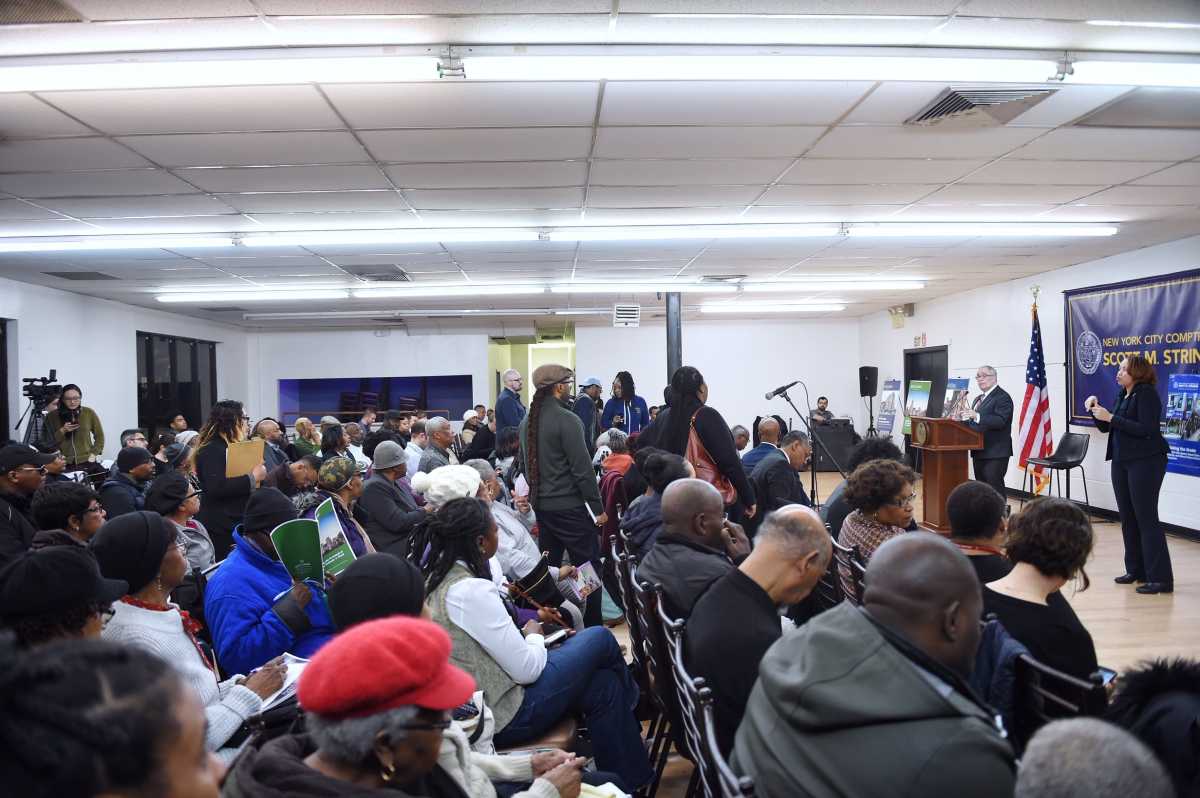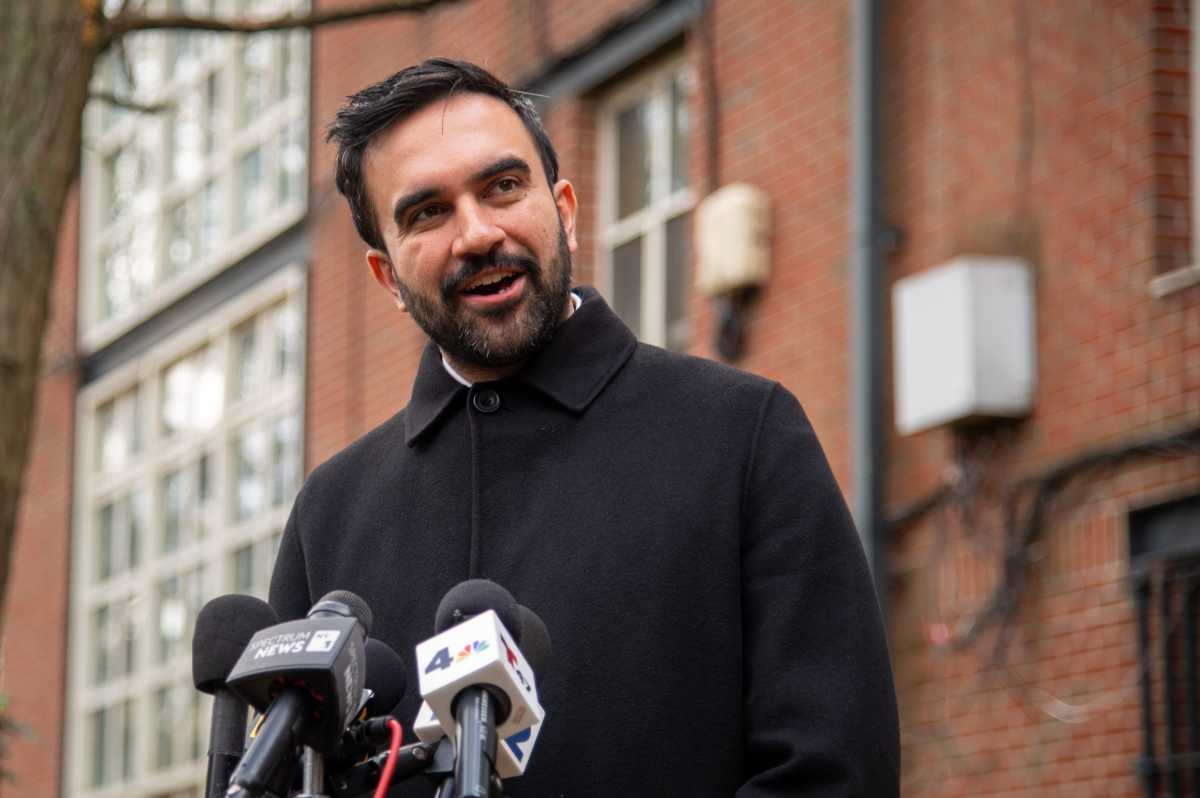First, it was the city’s Third Party Transfer Program (TPT), now residents are claiming that another city affordable housing program is reducing black homeownership at alarming rates.
At Bedford-Stuyvesant’s Restoration Plaza, 1368 Fulton Street, dozens of local residents and community leaders last night attended New York City Comptroller Scott Stringer’s community Town Hall to demand help in fighting against the city’s recent seizure of six properties under yet another Department of Housing Preservation and Development’s (HPD) program that residents allege plays a large role in the loss of black homeownership across Central Brooklyn.
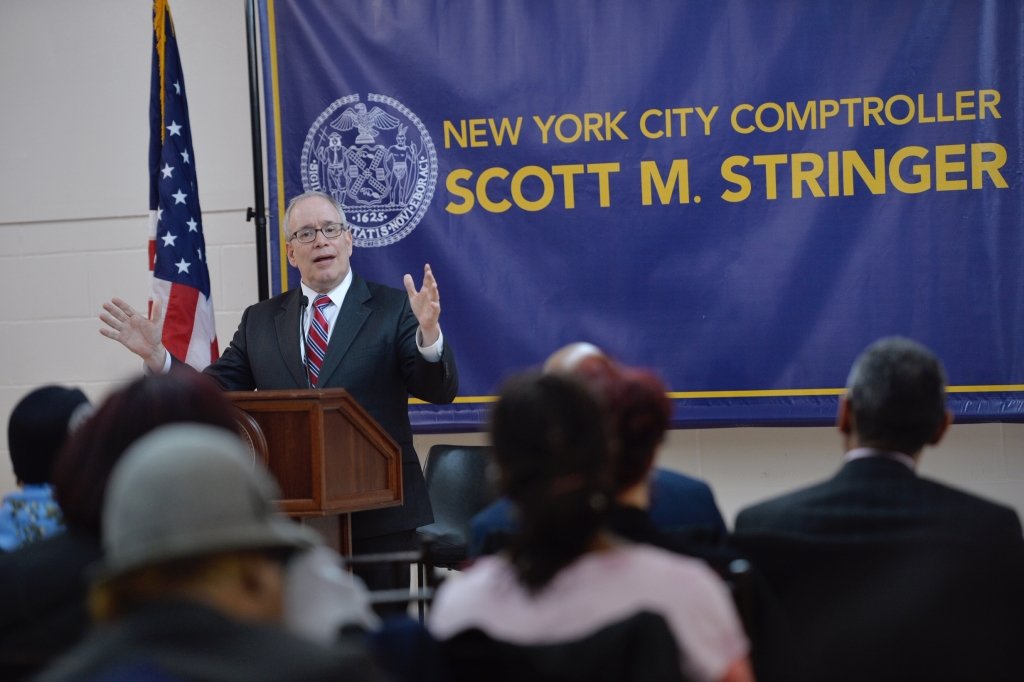
The Affordable Neighborhood Cooperative Program (ANCP) acts somewhat like HPD’s Third Party Transfer program, which KCP has been following closely, with some similarities and differences.
While the TPT program has taken fully paid off black-owned properties worth millions of dollars with no compensation, ANCP affects tenants that manage city-owned buildings under the city’s Tenant Interim Lease (TIL) Program, which was established in the 1970s and 80s, when the city was rife with slumlords and abandoned buildings. TIL is under HPD and has tenants pay rent to the Tenant Association. The funds are then used for building maintenance, and many tenants thought they had an understanding with the city that they would control management and any capital improvements.
But like the TPT program, HPD earlier this year transferred ownership of six Central Brooklyn TIL properties they currently own to the non-profit Restoring Communities Housing Development Corporation (RCHDC), an affiliate of Neighborhood Restore, for a $1 each.
According to a legal ad in the New York Daily News dated Jan. 23, 2019, HPD moved forward with the sale of properties located at 32 Putnam Avenue, 34 Putnam Avenue, 550 DeKalb Avenue, 55 Carlton Avenue, 374-76 Prospect Place and 1216 Pacific Street.
And like the TPT program, Neighborhood Restore then turned over the buildings to a non-profit developer – in this case, Bedford-Stuyvesant-based Bridge Street Development Corporation – who in turn moved out existing tenants while they redevelop the properties only to move them back in and offer to sell them their units back as co-ops for $2,500.
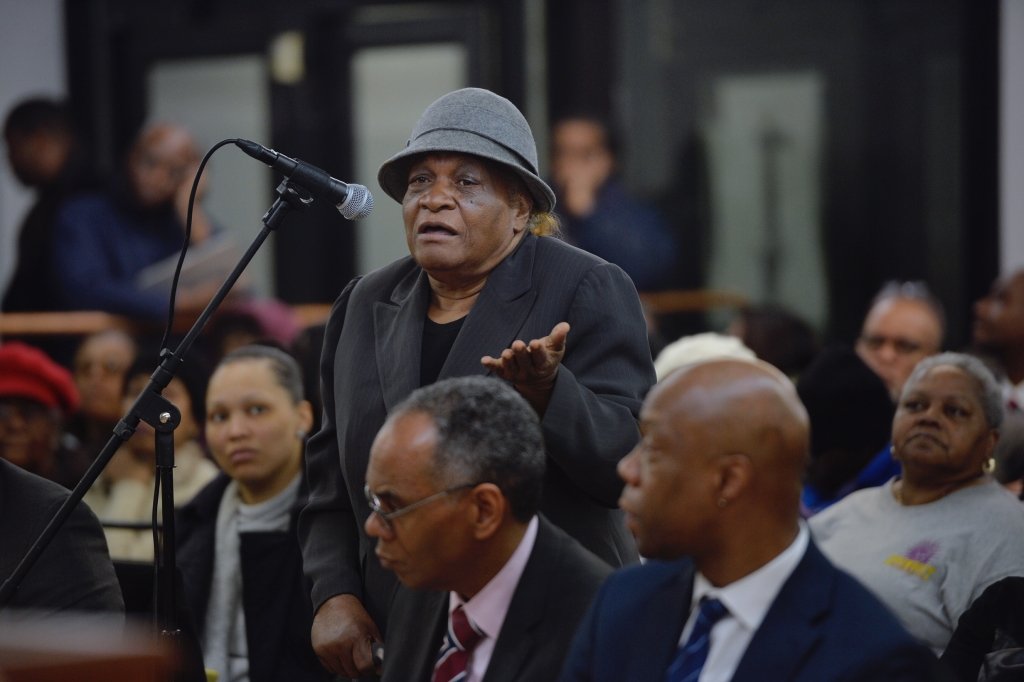
Bridge Street get financed through the city with taxpayer dollars at zero or low-percent interest. The non-profit gets a 10 percent development fee of the total amount financed.
But tenants at 374-46 Prospect Place allege that they were already on the path toward homeownership, and in 2000 the Tenant Association signed a contract with HPD, selling the tenants the building for $1, with the expectation that every resident would eventually own their own unit.
Under the contract: HPD was suppose to help the tenants manage the building with the assistance of an HPD-TIL Building Coordinator for five years; newly renovate the building at the end of the five year period; and allow tenants to move back into their units after the renovation project as cooperative shareholders buying back their units for $250.
The tenants say the city never held up their end of the bargain and instead seized their building under ANCP, completely robbing them of their opportunity to own property.
Longtime Prospect Place resident Celeste Morris, wants increased transparency at the agency she claims is working hand in hand with the Department of Buildings (DOB) and Finance (DOF) to decrease black homeownership.
“HPD is an agency that needs to be audited. Hopefully, the office of the Comptroller will be able to do that. The TIL program was something that was offered to tenants in many buildings, several of them are HDFCs, where people are now being told they can’t own their units anymore. These are one of the really great programs for affordable housing. Hopefully, you will be able to do some kind of audit, so we can get some of this under control as to HPD’s taking of the land and wealth from out people,” said Morris.
Tammy Meadows, a resident of 374-76 Prospect Place, said that the seizure of their building is just another way to allow gentrification to continue sweeping across Central Brooklyn.
“Why would we just give up our rights to the building under the TIL Program when we put up all the sweat equity into the building. Now you come to tell us that because there is a building across the street with condos that we don’t fit there anymore,” said Meadows.
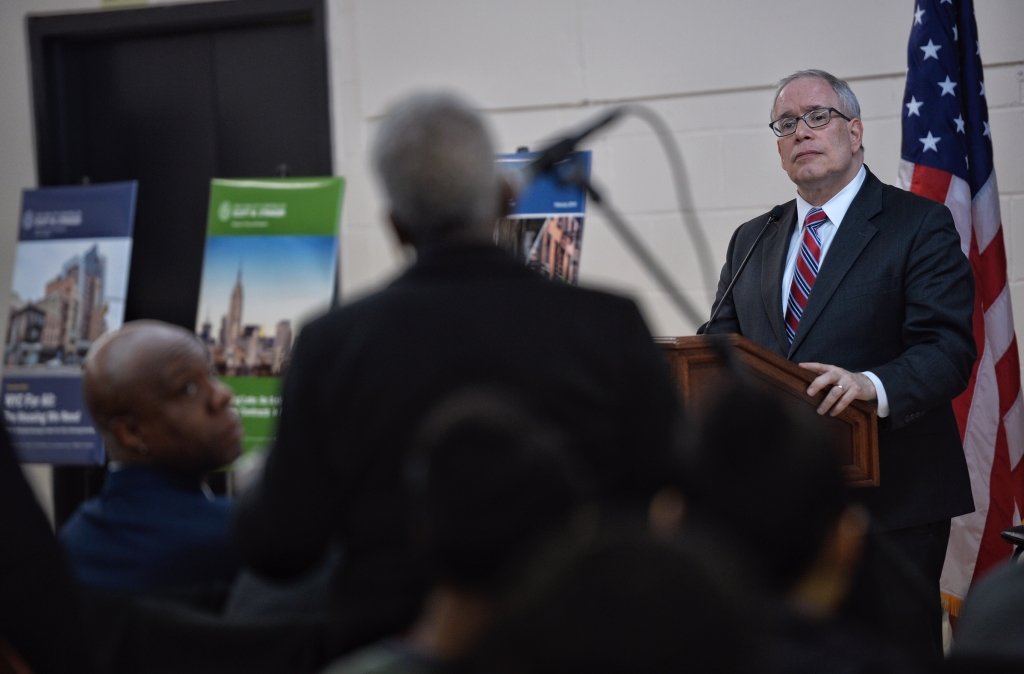
Meadows also went on to note that previous buildings seized under ANCP haven’t been very successful at fulfilling their promise. She cites the fact, that at her building for over 11 years there have been temporary relocation tenants that were never moved back into their former buildings.
“They were promised to go back to their building after renovation. They have never gone back to their building. And now they are asking us to pack up and leave. They said that once we leave were no longer a TIL organization and we’re not HDFC, were in limbo. Why would we trust to do that for two years and give up our rights to the building? HPD is a monster for gentrification. They have steamrolled through the neighborhoods and are partnering with these developers that we know nothing about,” added Meadows.
Meadows says that the plan is for them to move out for two years while the building at Prospect Place is renovated but she has reservations about leaving her longtime neighborhood and home after so many broken promises.
Stringer is hoping to be able to help stop some of the loss in homeownership across black communities going forward, committing himself to finding a solution to the problem.
“We don’t want to see people who have built up our city being thrown out of their homes. It’s disheartening to hear people tonight who are obviously here because they want action by HPD. We need a way to solve this issue because the answer is not taking people’s home,” said Stringer.
“Let me pledge to you tonight that we will work with you on this, we have been also looking at these programs, HDFCs and TIL. We have tried to hold them accountable and not take it out on tenants but I promise to engage you and work together on this issue,” added Stringer.


